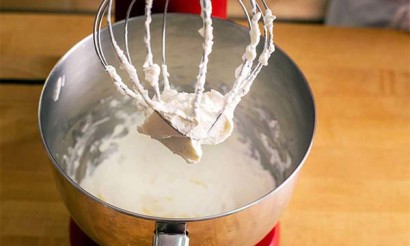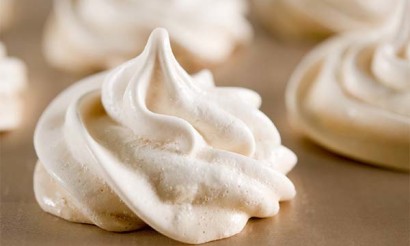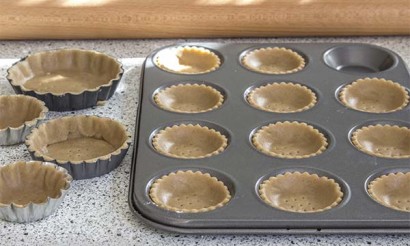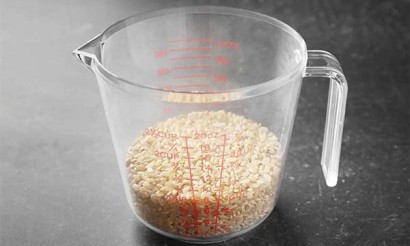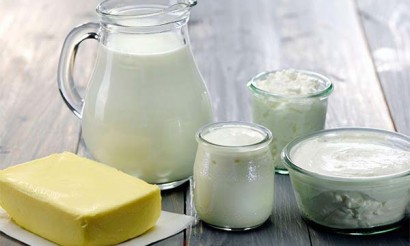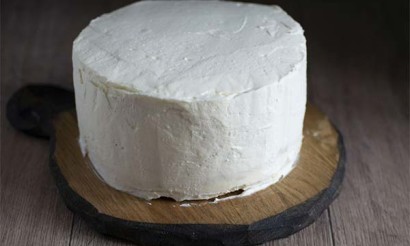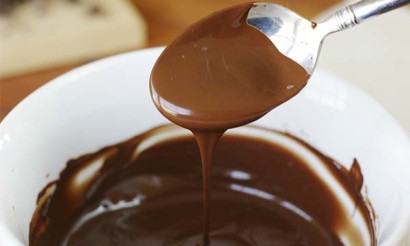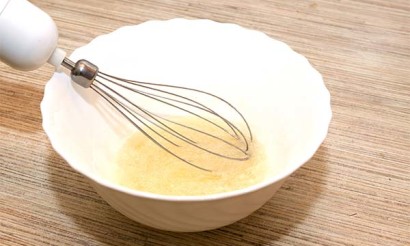How do you know when the soup has gone bad? Signs of sour soup
Naturally, any, even freshly cooked soup, if left overnight in a warm room, will sour by morning. However, in some cases, even the refrigerator will not save the situation. Therefore, it is very important to observe the conditions and terms of storage of ready meals. About this and will be discussed below.
How to know if the soup has gone bad
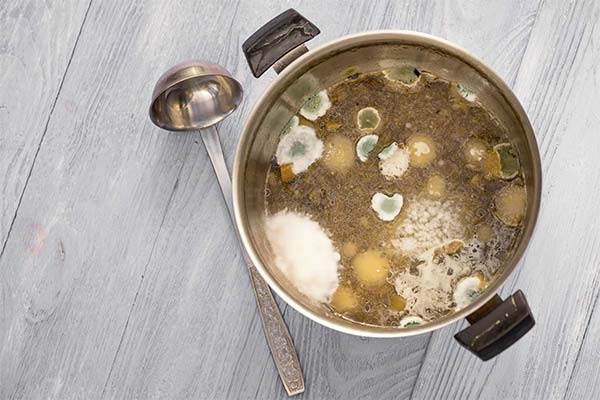
Spoiled soup is indicated by the following signs:
- stratification of the broth, which becomes ugly, cloudy color;
- A sour, unpleasant smell;
- The appearance of foam on the surface when heated;
- Change of consistency, which becomes viscous and heterogeneous.
The presence of these signs means that it is not safe for health to eat such a product. There are ways to "revive" a little bit sour soup, but not subjected to decomposition processes. If there is foam, putrid odor, change in color and consistency of the soup can safely be thrown in the trash. Do not risk your health!
Fish soup when spoiled forms a slimy foam on the surface, which is unlikely to cause a desire to eat them. Mushroom soup will have an unpleasant smell that has nothing to do with the pleasant aroma of mushrooms. Also, small bubbles will begin to form on the surface of the mushroom, chicken soup, indicating the beginning of the fermentation process. Pea soup will become sour, and its consistency will be unnaturally viscous and heterogeneous. Even during the onset of spoilage, the dish will completely change its taste. Soups with sour ingredients - hodgepodge, rassolnik, cabbage soup made of sauerkraut if storage conditions are not observed begin to ferment, and the processes of fermentation become immediately noticeable.
Can poisoning with sour soup
Poisoning with sour soup is just like any other spoiled food. After some time after the consumption all symptoms of poisoning will appear.
Warning! Some pathogenic bacteria do not die even when boiled. Toxins are sure to cause poisoning!
How to save a soup that has gone sour
If the soup has just begun to sour, but has not acquired an unpleasant color, odor and unnatural consistency, you can try to rehabilitate it. To do this, you need to boil it for 5 minutes, which will allow the taste to recover and the pathogens to die. The dish should be boiled over low heat.
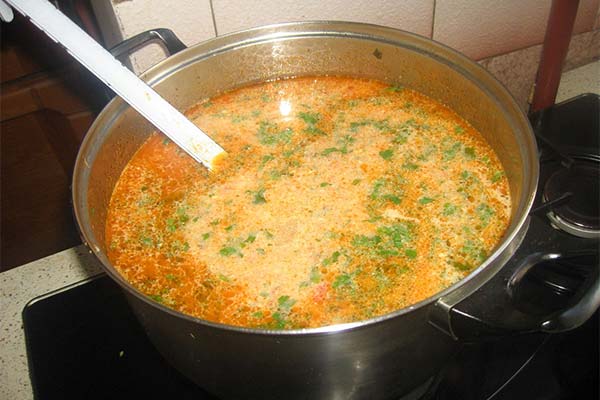
Improve the taste of the soup with the help:
- Spices - black pepper, curry, coriander, bay leaf, crushed garlic which is put after boiling.
- Fresh herbs - parsley, dill will give the soup an appetizingly pleasant appearance.
- Additional ingredients - garlic croutons, sour cream.
- Weak boiling with a bag of raw rice lowered into the pot, which will absorb the acid.
If there is an unpleasant smell in the soup, you can eliminate it with the help of circles of raw carrots, which are fried in a hot pan without oil, and then put into the boiling dish. Sustain for 10 minutes and take out.
Important! If after the manipulation of the unpleasant smell and other signs of deterioration of the soup did not disappear, then it remains only to pour it out!
Why does the soup sour the next day in the fridge
If the technology is not followed and the soup is stored incorrectly the soup can go sour even in the fridge. The reasons for this unpleasant situation lie in:
- Products of poor quality were used during cooking - tomatoes began to spoil, fish preserves have expired.
- Gross technological mistakes were made during cooking.
- Dirty crockery was used.
- The soup after cooking was flavored with a lot of fresh herbs.
- There was an increased temperature in the refrigeration chamber.
Therefore, when cooking the soup you need to use fresh, quality products, and greens should be added only to the plates. Cook in a thoroughly washed pot, in which in no case should remain the remains of past dishes. The refrigerator should be set at the right temperature, reducing it by a few degrees. There is no need to reheat a full pot of soup every time, which will reduce the storage time several times. It is better to pour out the desired portion and reheat it. The ladle for scooping the broth should be clean each time.
Tip! Soups with the addition of dairy products - milk, sour cream, yogurt, cheese spoils very quickly. Therefore, prepare them in portions, not leaving them for a long time to store!
Shelf life and conditions
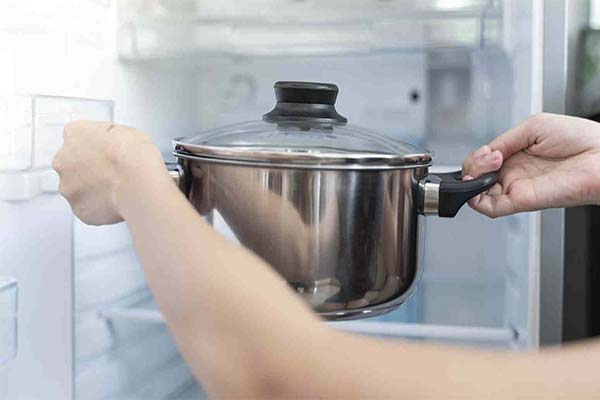
Knowing the shelf life of soup and the right conditions for it, you can avoid throwing products in the trash. Of course, the higher the temperature in the kitchen, the faster the cooked dish will go bad. Therefore, after cooling the pot should be placed in the refrigerator. Each type of soup has its own shelf life. For example:
- Mushroom soup is stored for no more than a day, even at low temperatures;
- soup, borscht, hodgepodge - up to 4-5 days;
- Chicken soup with grits, noodles - 2 days;
- pea soup - 2 days;
- fish soup - no more than 2 days;
- Cheese soup - no more than 1.5-2 days;
- vegetable - 1 day;
- Mashed potato soup - no more than 1.5 days.
Save the useful properties of the dish and its taste will allow a quick cooling of the pot in a cool place. Immediately after cooling it should be removed to the refrigerator, where the temperature should not exceed plus 2-4 degrees. Store only with a tightly closed lid, previously removing the ladle from the pot.
It is worth saying that the soup of peas and beans tends to spoil very quickly in the heat. Therefore, immediately after cooling it should be placed in the refrigerator. You should also know that the presence of potatoes in the broth at times reduces the storage time. It is not necessary to keep the cooked dish in aluminum cookware. If there is no other, then keep it in the refrigerator no more than 12 hours, until the harmful substances have not passed into the broth.
Tip! For long-term storage, broth or soup can be frozen in the freezer.
«Important: All information on this site is provided for informational purposes only for information purposes only. Consult a health care professional before using any of the recommendations. should be consulted with a health care professional before being used. Neither the editors nor the authors shall be liable for any possible harm caused by materials."


